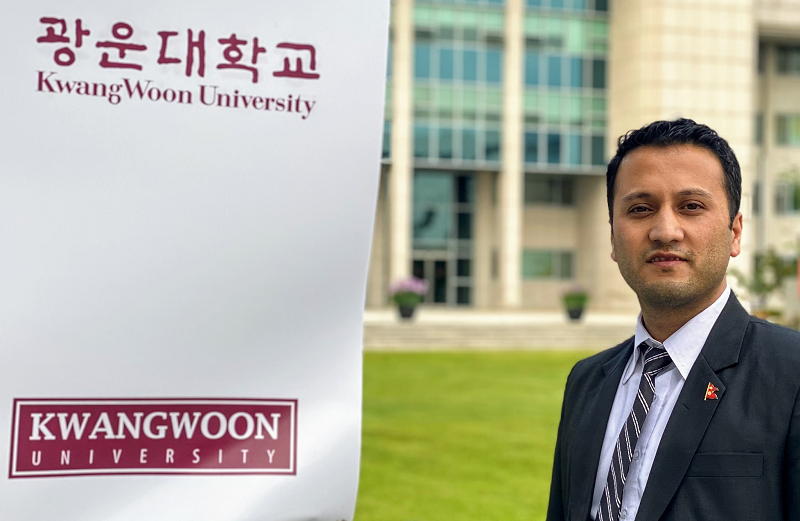Professor Sangshin Lee's Lab Won 1st Place at the International Conference
- admin
- 2022-07-27
- 6511
(Department of
Electronic Engineering) won the Best Paper Award in the poster presentation
section at the international conference “Conference on Lasers and
Electro-Optics (CLEO) 2022”
- Prof. Sangshin Lee's research team won the first prize for the best paper in the CLEO 2022 poster contest at the international academic conference -

With a distinguished history, CLEO is one of the leading
international academic conferences in the field of optics and lasers, with more
than 4000 attendees annually, and is the highest-ranking conference in the
field of optics and photonics in the Google Scholar rankings in 2022. Basil's
student's thesis was selected as 1st place among the 3 best theses selected in
the poster contest hosted by the Division of Laser Science of Americal Physical
Society at this year's CLEO.
In optical integrated circuits, methods such as gratings
and edge couplers have been mainly used for optical coupling between optical
fibers and waveguides. The grating coupler is easy for wafer-level testing of
optical integrated circuit chips but has problems such as high insertion loss
and narrow wavelength bandwidth. On the other hand, the single-sided coupler
has advantages in terms of optical loss and wavelength bandwidth, but after
cutting the optical integrated circuit into a chip shape, a post-process such
as single-sided polishing is essential. In this paper, by introducing a
phase-change material-based hybrid optical coupler, it is possible to
simultaneously combine lattice and cross-section in a single chip, proving that
the problems of the existing method can be fundamentally overcome, and its
excellence was recognized at this conference. The proposed technology is
expected to be widely used to verify the yield after verifying the performance
of the optical integrated circuit device through the semiconductor process in
the future.
Currently, Professor Sang-Shin Lee is the head of the
'Nano Device Application Lab'. Since he took office in 2002, he has been
actively researching various topics such as optical communication devices,
nano-optical devices, and optical sensors, and has published about 160 papers.
was published in a leading overseas SCI journal. He is also conducting research
on core technologies related to the 4th industrial revolution, such as silicon
photonics-based LiDAR sensor modules for autonomous driving and wireless
optical communication devices, with support from the Korea Research Foundation
and others.
Meanwhile, this research was carried out through the support project for university-focused research institutes in science and engineering supported by the Ministry of Education and the mid-level researcher support project supported by the Ministry of Science and ICT.